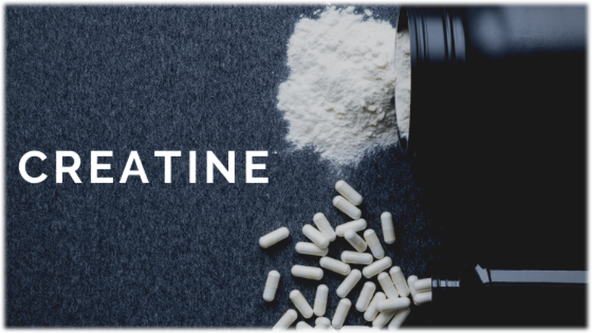What is Creatine?Creatine is a substance produced naturally by the kidney and liver when you consume protein. The body converts it into a molecule called phosphocreatine, which is then stored in the muscle cells. When your body requires energy, these phosphocreatine stores are then converted into ATP (Adenosine Triphosphate), which can be broken down to produce energy. This supplies your muscles with energy during high-intensity physical activity. How Supplementation WorksAs ATP is broken down to produce energy for movement, the stores of it in the muscle cells become depleted; more is needed to continue physical activity at the same level. With time ATP is re-produced and supplied to the muscles, however, through creatine supplementation this process can be improved. By supplementing creatine, you are increasing phosphocreatine stores within your muscles. This is important because phosphocreatine is essentially a form of stored energy in the muscle cells, and is crucial in the replenishment of ATP. Therefore, with these readily available additional stores, your body can reproduce more ATP to fuel your muscles during high-intensity exercise. How Creatine Can Benefit You1) Increased Muscle Mass Creatine can therefore have the potential to help you build muscle mass more significantly than if you were to not supplement it. With enhanced ATP replenishment, you’re more able to increase the intensity and/or volume of your workouts, crucial factors to muscle growth. A 12-week study in weightlifters indicated that creatine increased muscle fiber growth 2–3 times more than training alone. The increase in total body mass also doubled, alongside one-rep max for bench press. Additionally, studies have shown a rise in anabolic hormones among individuals who supplement creatine, such as Insulin-like growth factor 1 (IGF-1), a hormone that leads to growth of muscle mass. 2) Increased Strength & Performance The body’s increased capability to produce ATP also leads to beneficial outcomes regarding strength and athletic performance. Normally, during high-intensity exercise, ATP stores are depleted within 8-10 seconds. However, with creatine supplementation, the additional ATP stores mean that optimal performance can be extended for a few seconds longer. You can imagine how crucial this could be for an elite-level sprinter, trying to cut milliseconds off their time. In a study carried out on well-trained strength athletes, 28 days of creatine supplementation increased bike-sprinting performance by 15%, and bench-press performance by 6%. 3) Brain Health The brain relies on a constant supply of energy for optimal functioning; without it, brain function suffers and cellular structures can become damaged, potentially leading to the progression of neurodegenerative disease. Several neurological diseases involve a reduction in phosphocreatine stores of the brain, so through creatine supplementation it may well be possible to reduce the rate of cognitive decline. Whilst the extent of creatine supplementation’s beneficial effects on cognitive health remain somewhat unclear, several studies have shown that it is an effective way of replenishing the brain’s energy stores, improving mental cognition and brain performance. SummaryStudies have consistently shown creatine supplementation to have positive effects on physical performance, with little to no drawbacks (other than stomach cramping when taken without sufficient hydration).
So whether your keen to put on a few extra pounds of muscle, improve your athletic performance, or facilitate better mental cognition, creatine can be of real benefit. On a personal note, Creatine is one of the few supplements that I do take, and have done for the last 6 months or so. I've noticed considerable changes in my physique and athletic performance, however this is of course only my experience. |
Author
Christian Lawal Personal Training.
Personal training in Tunbridge Wells, Tonbridge & Sevenoaks. Archives
January 2024
|


